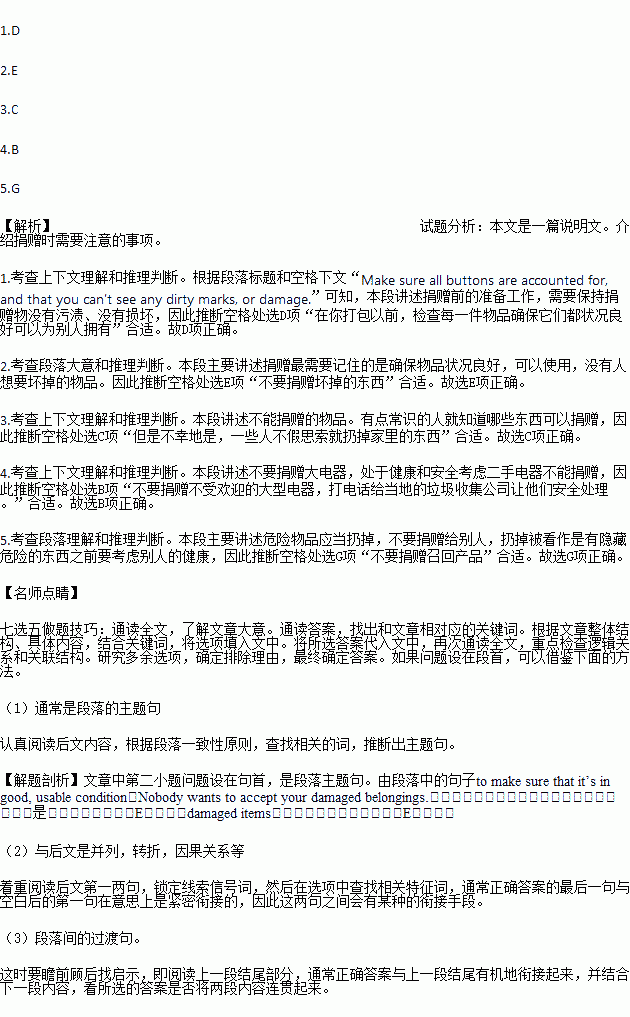题目内容
根据短文内容,从短文后的选项中选出能填入空白处的最佳选项。选项中有两项为多余选项。
Do’s and Don’ts of Donating
Giving up your unused or unwanted stuff is a great way to make space in your home for the items that you do enjoy on a regular basis. Not sure where to start? Here are some do’s and don’ts of donating your belongings.
Do Prepare Your Clothes
You’ve thoroughly cleaned out your closet and drawers, and have a mountain of clothing waiting to be donated. 1. Make sure all buttons are accounted for, and that you can’t see any dirty marks, or damage.
2.
The number one rule of donating your stuff is to make sure that it’s in good, usable condition. Don’t pass along old clothes or furniture, chipped dishes, books that are missing pages, or toys with lost pieces. Nobody wants to accept your damaged belongings. Find a local company that will recycle these items instead.
Don’t even think of donating these items
With a little common sense it’s easy to figure out items that are ideal for donations.3.As a gentle reminder, it’s never a good idea to donate car parts, dangerous waste, construction materials and weapons.
Don’t donate large appliances
Major appliances such as stoves, fridges, freezers, washers and dryers typically reside on the ‘do not donate’ list due to health and safety reasons. All items accepted for donation must be thoroughly clean and in good working order. With secondhand appliances, it can be difficult to guarantee that they fit the bill.4.
Don’t donate recalled items
Every so often a product recall hits the news headlines. Highchairs, toys, holiday lights for Christmas trees—the list of recalled items due to safety concerns is endless. 5. A dangerous product should be thrown away, and not passed on to an unsuspecting person. Think of the well-being of others before dropping off something that’s viewed as a hidden danger in your own home.
A. They’re all acceptable items for donation, too.
B. Instead of donating an unwanted large appliance, call your local trash collection company and arrange for their safe disposal.
C. But unfortunately some people will throw away the contents of their home without a second thought.
D. Before you bag up these pieces, inspect each one to ensure that they’re in good condition and ready to be owned by someone else.
E. Don’t donate damaged items.
F. Clothes aren’t the only household items that can be donated.
G. Never donate recalled items!
 天天向上一本好卷系列答案
天天向上一本好卷系列答案 小学生10分钟应用题系列答案
小学生10分钟应用题系列答案
